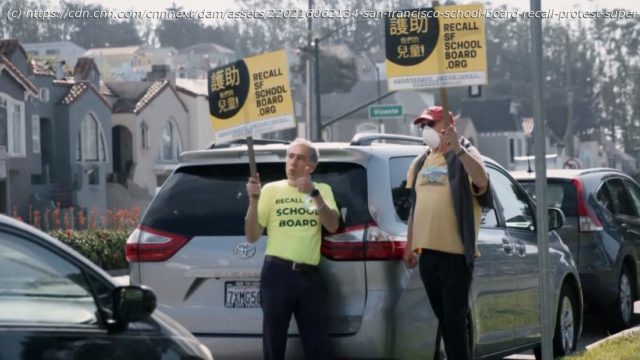While the results in San Francisco school board recall may resist simple analysis, the politics swirling around the recall tell us something important about a process underway across the country – and the long history of ‚parents‘ rights‘ rhetoric, writes Nicole Hemmer.
This week’s recall election in San Francisco is following a similar pattern. Three school board members lost their seats in a recall effort fueled by so many different issues that observers could easily play pick-your-own-narrative. There were extended pandemic school closures, a ham-handed effort to rename schools commemorating Abraham Lincoln and George Washington, among other figures, in the name of social justice, an attempt to move away from testing and GPA requirements for admission into high-ranking public schools, a growing achievement gap, an enormous budget deficit and, in the case of one school board member, the use of a racial slur in an anti-Asian rant. All that makes trying to sum up the lessons of the recall a tall order. But while the results in San Francisco may resist simple analysis, the politics swirling around the recall tell us something important about a process underway across the country. In San Francisco, deep-pocketed, right-leaning donors shoveled money into the recall, while activists and media outlets began using language that lashed together the disparate dissatisfactions into a coherent message. This rhetoric of „parents‘ rights“ is not new to the 2020s; conservatives in Colorado in the 1990s even sought to pass a „parents‘ rights“ amendment „to direct and control the upbringing, education, values and discipline of their children.“ Yet it is now being reworked to funnel all the discontents of the era into a set of right-wing school politics at the heart of the GOP’s strategy for the coming midterm elections. Political organizing around schools is nearly as old as compulsory schooling itself, sparking battles over access, the teaching of subjects like evolution and sex and mandatory prayer and pledges of allegiance. Parents played a role on both sides of all these issues, advocating for the school rules that they felt aligned with their own values. Yet because so many of these issues would ultimately be settled in state legislatures, Congress and the courts, the right successfully framed school politics as concerned parents having their rights infringed by politicians, bureaucrats and judges.






